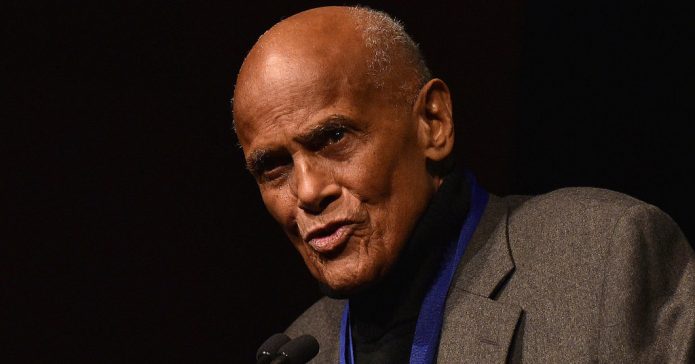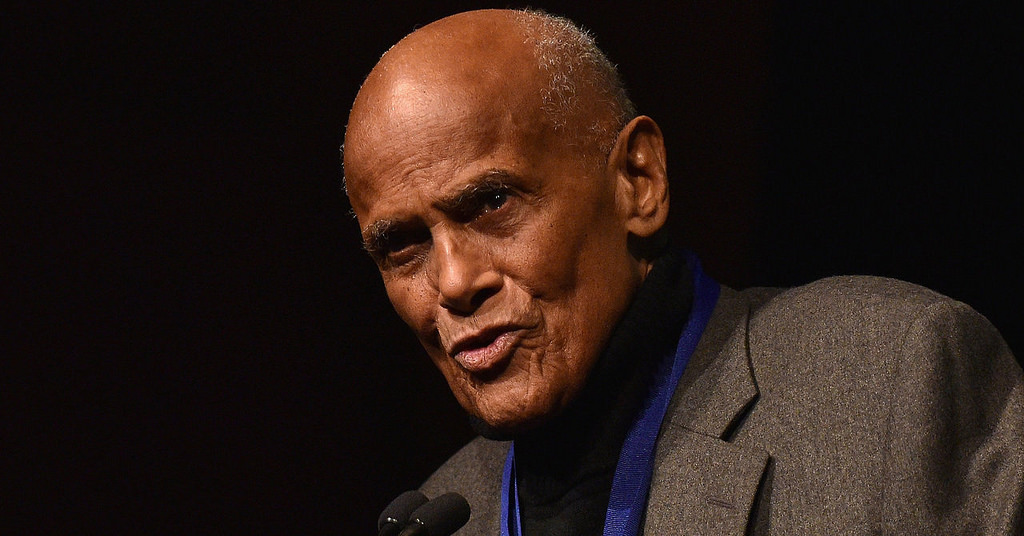
adrian mustredo / flickr
Harry Belafonte has been a household name across the United States and around much of the world for seventy years. He’s ninety now—and his legendary resonant voice is a bit harder to decipher sometimes. He walks with a cane, and more slowly. But his mind—quicksilver, curious, funny—is as swift as ever.
He’s been often worshipped and occasionally reviled for his music, his acting, his activism, his internationalism, and his commitment to justice. He’s been a mentor to generations of activists, an organizer and mobilizer, and a man of biting wit. He remained a sought-after speaker up until his recent announcement that he may stop giving public appearances.
His memoir, My Song, which came out a few years ago, gives a lively insider history of the civil rights movement. But even as a best-selling author, Harry was never primarily known, at least as far as I was aware, as a literary figure, a bibliophile. Until this year.
In February, New York’s 115th Street Public Library—in the very center of historic Harlem—was renamed in his honor. At the ceremony, New York City Mayor Bill de Blasio said, “Harry Belafonte has a storied career as both an artist and an advocate for New York City. His drive and initiative have had major impact in the realms of social justice, civil rights, culture, and activism, especially in the Harlem community. It is my honor and privilege to work with the New York Public Library to honor Mr. Belafonte and celebrate the life and accomplishment of this invaluable New Yorker.”
…
